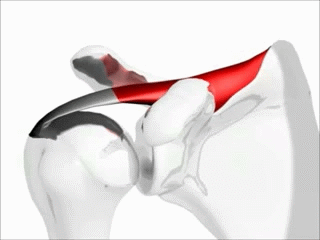Upto 26% of the population experiences shoulder pain at any one time. There are many different causes of shoulder pain but they can be generally grouped into three different kinds of disorders: mobility problems, force production problems, and movement coordination problems. Read more below to learn about each of these problems and how More 4 Life Physical Therapy can help regardless of what type of pain you have.
Mobility Problems
These conditions include arthritis and "frozen shoulder" (adhesive capsulitis). The main problem in this type of pain is that the joint and the tissues surrounding it are stiff, and PASSIVE mobility is limited (meaning neither you nor the therapist can move your arm throught full range). This type of pain can be helped by joint mobilization, manual trigger point therapy, dry needling, and instrument assisted soft tissue mobilization (IASTM).
Force Production Problems
This primarily consists of rotator cuff disease. Rotator cuff disease is very common and can range from mild inflammation to full rotator cuff tears. PASSIVE movement of the joint is usually only minimally limited and painfree, but ACTIVE movement (moving under your own power) is painful. The primary problem is a muscle dysfunction in which the muscle cannot produce as much force as normal. This may be due to trigger points in the muscle or in some cases tears in the muscle fibers that make the muscle weaker. Rotator cuff tears are common after 50 years of age ranging from 11% in the 50s to 37% in the 80s. However, only about 35% of people who have rotator cuff tears actually have shoulder pain. (Yes, less than half!) Furthermore, people who have small rotator cuff tears usually have better outcomes with non-surgical treatment (i.e. physical therapy) than surgical treatment.
Movement Coordination Problems
In this type of problem, the various muscle groups that move the shoulder don't fire in the proper ratio or at the proper time causing the ball of the shoulder joint not to stay centered in the socket. Think of the shoulder like a golf ball on a golf tee: when the ball is centered on the tee, it can rotate smoothly, but if the ball is off center it can pinch on the edges of the tee. This can cause a number of issues such as shoulder instability, labral tears, or irritation of the rotator cuff. Movement coordination problems are often present in the other types of shoulder pain as well and may be causative factors of these types of pain. More 4 Life Physical Therapy can teach you to move in a more coordinated manner to help get rid of your pain and prevent it from recurring.
Tired of shoulder pain?
Contact More 4 Life Physical Therapy today at 314-941-3970 to start getting pain relief.



